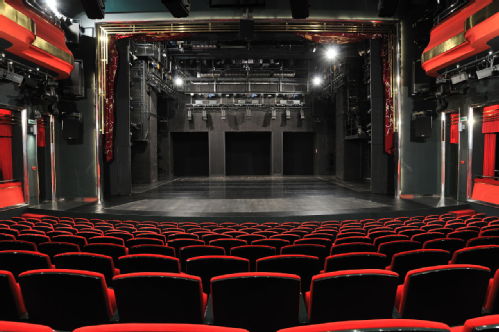All 1 entries tagged Cultural Workers;
No other Warwick Blogs use the tag Cultural Workers; on entries | View entries tagged Cultural Workers; at Technorati | There are no images tagged Cultural Workers; on this blog
March 23, 2020
The challenge facing our creative industries during the COVID–19 crisis
It is fair to say that the recent Government advice to delay the spread of Covid-19 has had a profound effect upon many sectors including the cultural and creative industries. There are many reasons why closures in the cultural sectors have hit people so hard and why we need to protect them going forwards.
1. The plight of freelancers
The cultural and creative industries have one of the highest rates of freelance workers of any sector in the UK. These freelancers work across a range of areas. For example, a theatre performer might also work on cruise ships, on television, in film, music or fashion all of which have been halted due to the pandemic. With no permanent contracts and minimal employment rights most of these workers have suddenly found themselves losing their jobs immediately whilst also having future work cancelled.
Being used to periods of unemployment freelancers are adept at using their skills to find alternative work but this is also on a freelance basis and often in hospitality, education or sport and leisure - all of which are similarly affected by the crises.
It is times like these when the precarious nature of freelance working is most starkly evident and harshly felt. Of course, freelance working is not limited to the creative industries. The ONS (office for National Statistics) estimates that around 15% of the total workforce are currently freelance or self-employed.
2. The invisible workers
When a theatre closes it is not just the performers that have lost their livelihood but the many, many jobs and businesses that are connected to the theatre. Within the theatre there are front of house staff, box office staff, cleaners, technicians, carpenters, electricians, wardrobe staff etc. Then there are the businesses surrounding the theatres, corner stores, shops, bars, restaurants, cafés, hotels, car parks. Finally, there are the related businesses providing marketing for theatrical productions, theatrical and musical agents and managers, production companies, promotors, physiotherapists and more. The next time you watch a film look at the credits, almost all the people on the seemingly endless list of jobs and names are freelance workers and with television and film production closing down all of those jobs and incomes have gone.
3. Financial cost
The financial loss to individual freelancers is catastrophic. The reliance upon numerous short-term contracts that are often poorly paid means that there is little chance of substantial savings. With no way to regain employment in the foreseeable future freelancers face the prospect of being unable to pay basic rent and bills. They also cannot afford to buy services of any kind so related businesses suffer. At the community level there is the loss of passing trade and tourism associated with cultural sites such as theatres and a loss of work for locals who work in those sites. The same of course is true for those working in sports venues.
At the National level the creative industries contributes around £101.5 billion to the UK economy and is one of the few sectors that grew during the last recession. The DCMS (Department for Digital, Culture, Media and Sport) reported that the sector provided 5.3 million jobs in 2018 and London’s West End theatre generated £133 million in VAT revenue. With almost all cultural and creative sector activities closed there will be a significant loss to the economy.
4. Do the arts matter?
The arts and creative industries provide opportunities to come together, create and learn. They provide vital health care and well-being both physically and mentally. Community arts projects provide classes and sessions for people with dementia and Parkinson’s Disease as well as babies, toddlers and those with differing learning and physical abilities. There are community arts projects that provide opportunities for people of all ages, encouraging and inspiring young talent and developing future artists of all kinds. The power of cultural and creative activities to bring people together has resulted in initiatives such as Cities of Culture of which Coventry will soon be host. It is how we understand and challenge the world around us, it is how we understand and challenge ourselves and others, it is our past, present and future. It is our culture.
As a final thought, I'd like to highlight some of the positive ways in which cultural and creative workers have responded to the crises in addition to the ways in which cultural activities have brought people together at this time.
In Italy we saw opera singers and DJs performing from their balconies, and support and solidarity was expressed through communities singing together from their homes.
Here in the UK freelance workers from the arts are providing online exercise classes that people can join for free, they are streaming live recitals to entertain those in isolation, they have created networks for passing on information as it appears and are providing online music lessons and crafting sessions in addition to taking active roles in the responses of local communities.
The economic contribution of the arts is clear not only from the DCMS figures but also the many, many jobs that surround and support the venues and workers, and the income generated from exports and tourism. They provide entertainment that reproduces but also challenges our perceptions, values and beliefs through games, films, television, theatre, music, dance, museums and galleries. A world without any of these is unimaginable.

 Heidi Ashton
Heidi Ashton

 Please wait - comments are loading
Please wait - comments are loading

 Loading…
Loading…

